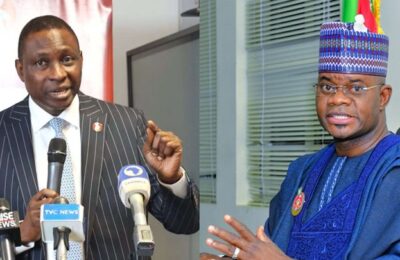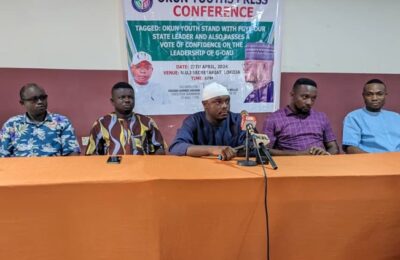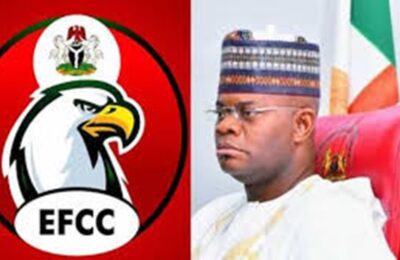A lot has been said about the November 16 Kogi governorship election by various stakeholders and indigenes of the state who see the election as another defining moment for our democracy. In the same vein, the Independent National Electoral Commission (INEC) has a chance to showcase her renewed commitment to free, fair and credible elections and thereby boost its integrity as a credible umpire. Democracy, as Professor Francis Fukuyama stated in his celebrated book, “The End of History and the Last Man,” heralds the last bus stop for humankind’s search for durable governance system. According to him, no political system is likely to overtake democracy as the most enduring system of governance because in it, humanity has found social, economic, security and most especially, egoistic needs which make human civilizational fulfilment realisable.
The challenges before nations, therefore, particularly after the consensus on the universality of democratic governance arising from the triumph of democracy over dictatorship in the cold war between socialist and capitalist economic systems propelled by the defunct USSR and the United States of America which resulted in the unipolar world dominated by civil rule have been how to manage the credibility of electoral process. This is in view of the centrality of people’s power of choice in a democracy.
Thus, how those that lead people under a democratic system of government could derive their mandate from credible, transparent and open electoral process to lend credence to the legitimacy of their civil rule has been the question that power philosophers, administrators and political scientists have to grapple with over the years. Principles of social contract demands that leadership in a democracy emanates from the will of the people to whom the rulers must remain constantly accountable and responsive in line with the terms of the contract which stipulate issues of good governance, effective representation, adherence to the rule of law, due process and negation of corruption. Ensuring that these values are duly observed, therefore, places huge responsibility on the electoral umpires which organise periodic elections that must be seen to be credible, free, fair and transparent enough to meet the yearning and aspirations of the people.
These make it imperative that electoral umpires remain neutral, truthful and unbiased in the conduct of elections. But as it is in most developing nations like ours where leadership selection process is still at its rudimentary level due to people’s attachment to kingship system unlike what obtains in a democracy, the struggle for modernisation of the process in line with global best practices is an ongoing campaign. That was what informed consistent reforms carried out in Nigeria’s electoral system since its attainment of independence 59 years ago to make it responsive to the democratic needs of the people.
The establishment of the Independent National Electoral Commission (INEC) towards the current democratic dispensation in 1999 after many years of military interregnum in the nation’s politics was the culmination of such efforts. Though faced with myriads of challenges since its establishment, INEC had its finest moment as an unbiased and credible electoral body when it conducted the 2015 general election which was hailed locally and internationally as credible, devoid of the usual manipulation, intimidation and interference. But as some analysts have rightly pointed out, the independence and sense of national responsibility exhibited by the body were functions of the determination shown by its leadership to redeem the image of the Commission as a neutral and credible electoral body; non-interference by the federal government determined to lay a solid foundation for credible electoral system in the country; introduction and application of the card readers and most importantly, the will of the people who were motivated to vote massively for change under an atmosphere of non intimidation by the military as well as other law enforcement agencies that monitored the elections.
The credibility of the election was evidenced by the fact that most of the results were accepted in good faith, with less Court cases, unlike what obtained in previous elections. Furthermore, the international observers as well as internal stakeholders hailed the process, while the image of the country as a democratic nation got instant boost and Professor Attahiru Jega who chaired INEC at the time was held in very high esteem for demonstrating independence, professionalism and skills of the electoral body in conducting of one of Nigeria’s most credible elections.
Unfortunately, the integrity of the body could not be sustained as subsequent elections conducted by the same INEC became characterized by rampart cases of card readers’ failures, inconclusiveness of the exercise and allegations of compromise by some personnel of the Commission prompting gale of complaints that followed successive elections after the historic 2015 general elections. Kogi state governorship election which was conducted in November of the same year had a taste of the new challenges that bedeviled the Commission when its own governorship election was declared “inconclusive.” This led to the crisis that brought in the incumbent governor, Alhaji Yahaya Bello, who though was not a participant in the main election, was made to inherit his party’s votes in the aftermath of the death of the leading candidate in the election, Prince Abubakar Audu of the All Progressives Congress (APC).
While the matter was pursued up to the supreme court where the last judicial pronouncement was made to give validity to Bello’s administration, his emergence as governor of the state has remained as controversial as he came buoyed by allegations of maladministration, poor leadership skills, lack of accountability, intimidation of political opponents and misuse of government resources being leveled against him. This is against the backdrop of huge federal allocations, internally generated revenues and bailout funds provided for the state in the face of the bungled workers’ screening exercise, non payment of monthly salaries running into several months. Meanwhile, in line with the spirit of social contract in a democracy, where people have the prerogative to renew or not to renew the mandate of an incumbent, the people of the state have been waiting patiently to pronounce their verdict on the leadership style of the governor through the November election.
While periodic election to be conducted by an unbiased electoral umpire that enjoys the trust of the people in fulfilment of democratic requirements wouldn’t have ordinarily caused any alarm, certain events in the state and across the country by the INEC in the last four years have increased people’s apprehension towards the November election in the state. For instance, it is no more a secret that in the desperation to sustain himself in office, the governor has been engaging in some alleged illegal acts including intimidation of his political opponents, acts of thuggery perpetrated by his suspected supporters and gale of disqualifications alleged to have been influenced by him against his opponents. But none of these allegations is as worrisome and apprehensive as his double registration by INEC at the government House Lokoja in 2017, where he illegally moved INEC equipment and materials to get himself doubly registered even while INEC does not recognise the location as a registration centre.
The fear, therefore, is that, if the governor could condescend to the point of influencing INEC to commit this illegality in the full glares of the media, what’s the assurance that he has not already compromised the electoral body to the point of forcing or influencing its personnel to do his bidding in the forthcoming governorship election in which he is so desperate to win.
Moreover, while majority of people of the state expected INEC to disqualify him for that illegality committed against the provisions of the electoral Act, having punished its own officials that were found culpable in perpetrating the acts, the governor was left off the hook and given clean bill of health to contest in the election unlike other candidates that were subjected to sledge hammer for certain alleged violations against the same electoral Act. The doubts in INEC’s impartiality to conduct free, fair and transparent election in the November 16 Kogi governorship election have, therefore, remained a cause of concern and apprehension by majority of people of the state.
Consequently, all eyes are on INEC in Kogi state to assert its independence and neutrality in the election by displaying professionalism and non-compromising posture in carrying out its statutory responsibility in the election. The world would be watching to see whether Nigeria has truly embraced democratic norms by allowing people to freely decide who leads them.
Most importantly, the world is waiting for a positive change in the Kogi election and how INEC conducts it would determine whether it would be a great testimonial for our nation as we move towards six decades of independence. We are at threshold of a defining moment for the electoral body and the nation. We must get this right.
– Dr Safiya Stephanie Musa, a social advocate, is the Chief Executive Officer/Founder of EduShine Educational Support Foundation




